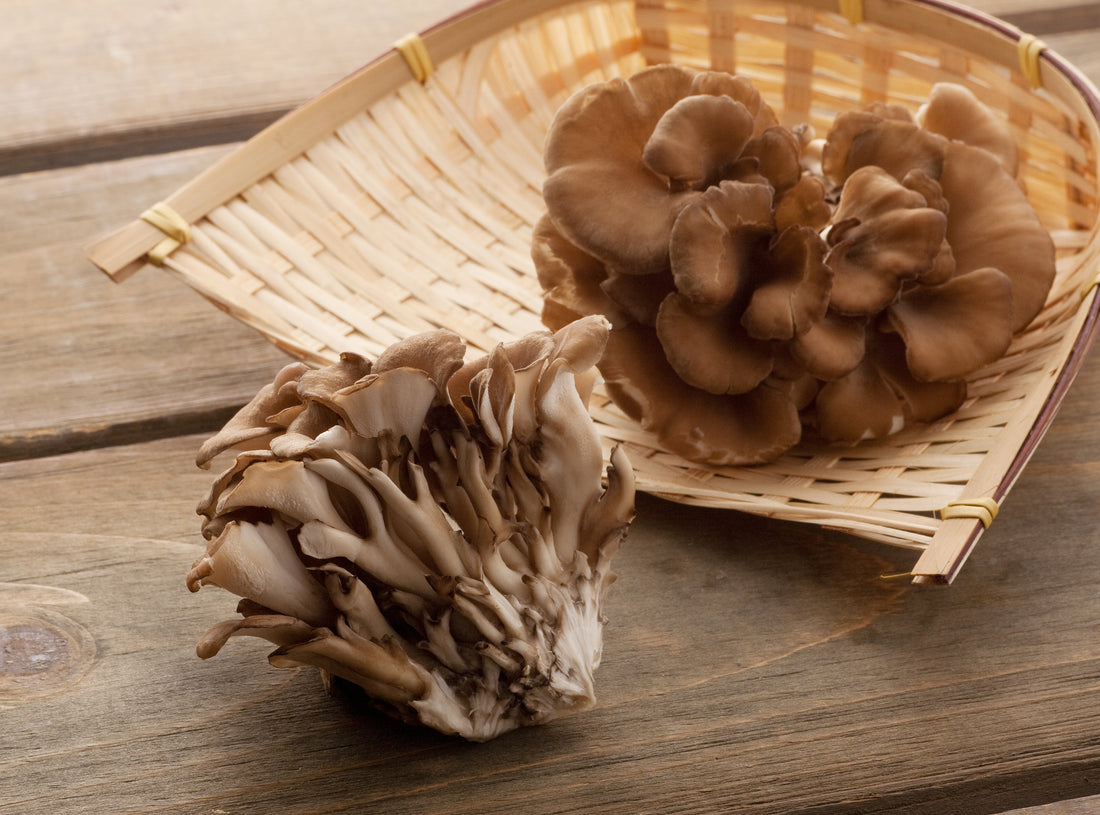Maitake mushrooms have been used for centuries in traditional Chinese medicine to improve digestion, strengthen immunity and reduce inflammation. More recently, they have also been linked with abnormal cell growth prevention due to their powerful anti-inflammatory properties.
In this article, we'll explore the various benefits of maitake mushrooms and how you can use them as part of your daily diet or supplement routine. We'll cover everything from recipes to supplements so that you can maximize the potential of these amazing fungi!
Overview of Maitake Mushrooms
Maitake mushrooms, also known as Grifola frondosa or "hen of the woods," are a type of fungus native to East Asia. This mushroom is widely used in traditional Chinese medicine for its medicinal properties, and it has been gaining popularity in recent years for its health benefits.
The maitake mushroom is known for its meaty texture and strong, earthy flavor. It can be eaten raw, cooked, or taken as a supplement. Since it is rich in essential vitamins and minerals, like B vitamins, potassium and iron, the mushroom is known to improve digestion, strengthen immunity and reduce inflammation. Maitake mushrooms have also been linked with abnormal cell growth prevention.
Now that you know a bit more about maitake mushrooms, let's look at the various health benefits they offer.
Health Benefits of Maitake Mushrooms
Maitake mushrooms are known for their many health benefits and have been used in traditional Chinese medicine for centuries. This fungus is rich in essential vitamins and minerals such as B Vitamins, Potassium, and Iron, which can help improve digestion, strengthen immunity, reduce inflammation, and helps prevent abnormal cell growth.
Some studies have shown that maitake mushrooms can also help reduce cholesterol levels and help improve cardiovascular health. It has also been linked to weight loss due to its ability to help regulate blood sugar levels and suppress appetite.
Finally, maitake mushrooms can be used to help with reducing abormal cell growth. The mushroom contains a compound called beta-glucan which has been found to increase the body’s ability to naturally fight off abnormal cells in addition to its anti-inflammatory properties.
How to Use Maitake Mushroom Extracts and Supplements
Maitake mushrooms can be used in several ways to maximize the benefits of this powerful fungus. Maitake mushroom extracts and supplements are available in various forms, such as tablets, powders and capsules.
The most common way to use maitake mushroom extract is through consuming it as a supplement. This can be done by taking one to two capsules or 1ml dropper a day with meals. The powder, tincture or capsule forms can also be added to smoothies, shakes and other beverages for an extra boost of energy.
Maitake mushroom extracts can also be taken as teas or tinctures. To make maitake tea, simply add a teaspoon of the extract to a cup of hot water and steep it for 15 minutes. For a tincture, mix 1-2 drops of the extract with one cup of water or juice and drink up to three times per day.
It can also be cooked into various dishes such as soups, stews and stir-fries. This is a great way to get the most out of this powerful fungus, as cooking helps break down the cell walls and release more of its beneficial compounds.
Conclusion
In conclusion, maitake mushrooms offer many benefits thanks to their essential vitamins and minerals, inflammatory reducing properties, and abnormal cell fighting compounds. Whether taken as a supplement, extract, tea or tincture, or cooked into food dishes, maitake mushrooms can help with various conditions specially when combined with proper diet and exercise. For those looking to maximize their overall health and wellbeing, maitake mushroom is an excellent choice!
So what are you waiting for? Start adding maitake mushrooms to your diet and reap the many health benefits they offer!
The information provided in this article is not intended as medical advice. Always consult with a qualified healthcare professional before starting any new dietary regime or supplement program. The author does not assume any responsibility for errors, omissions or contrary interpretation of the subject matter

